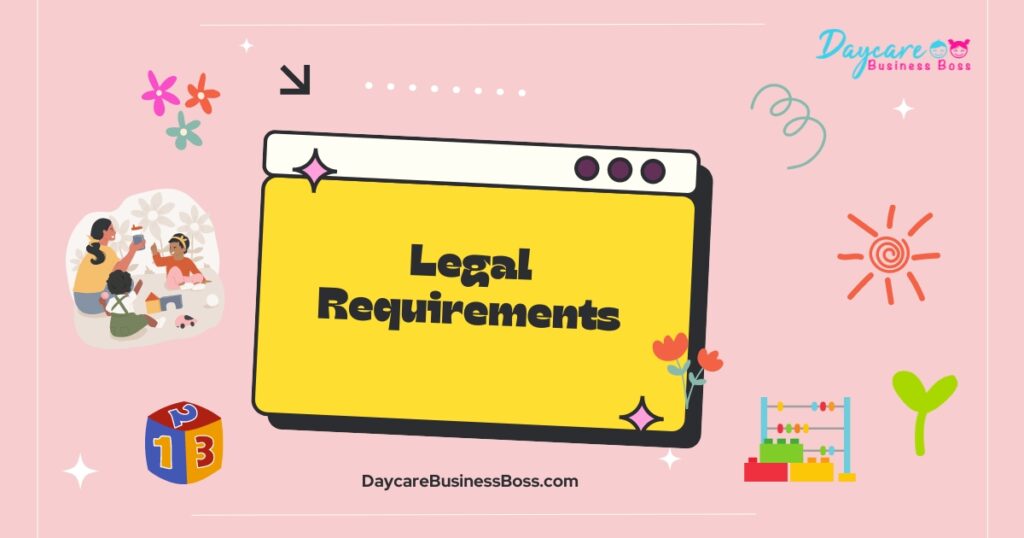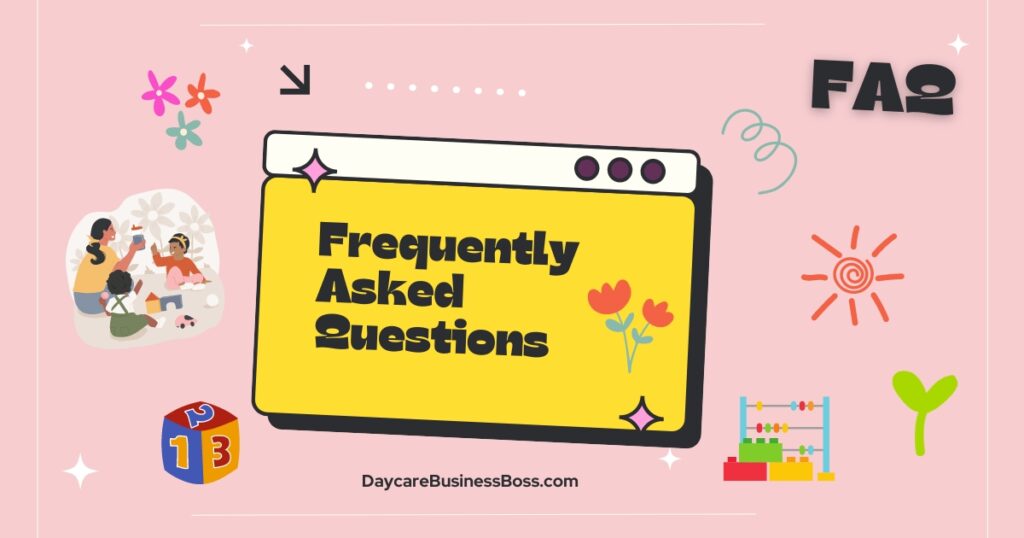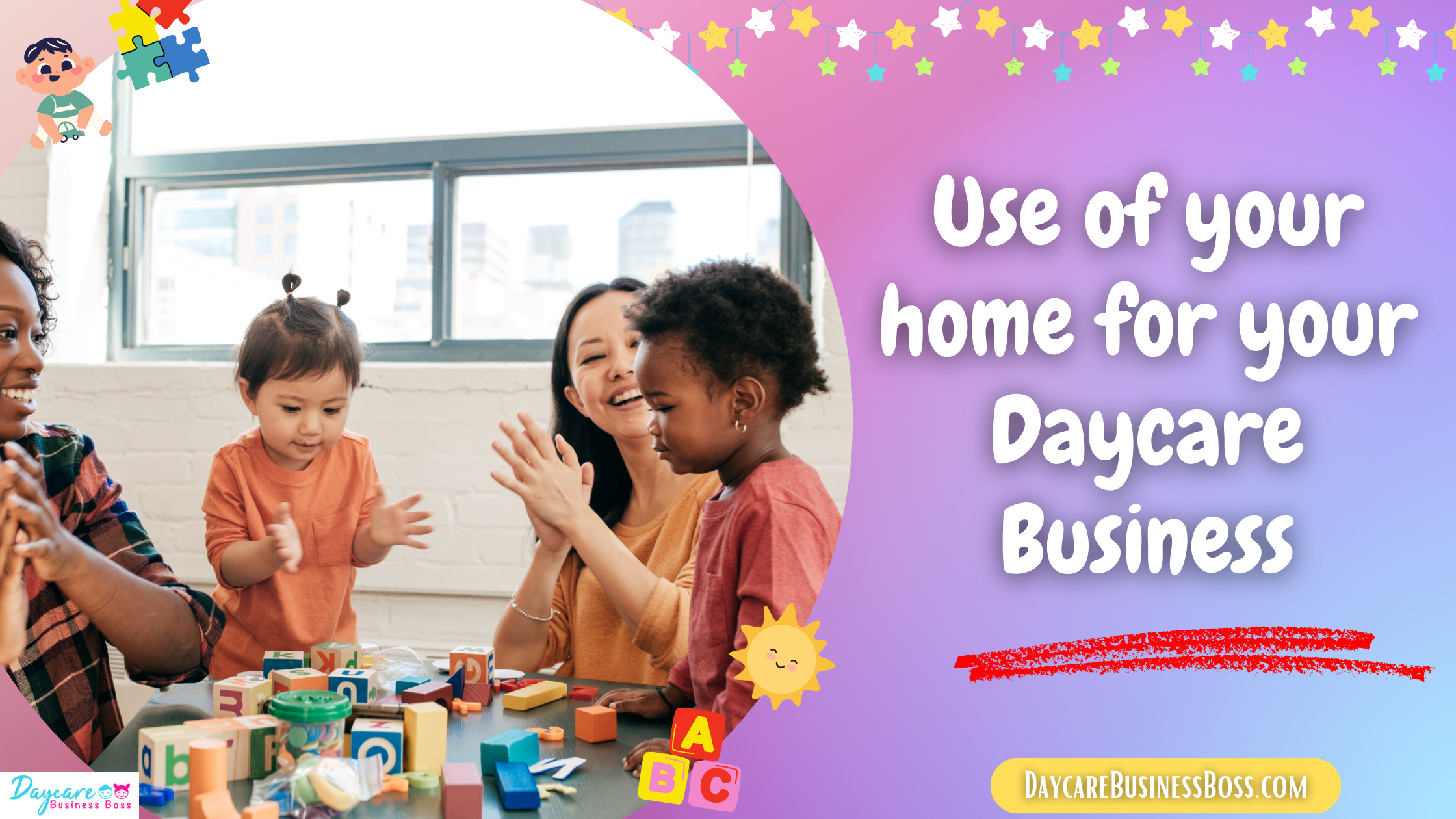Having a daycare business is a good way to get personal fulfilment and make some money at the same time if you love being around children.
Running a home-based daycare offers you the perks of working from home and taking care of your own kids. If you don’t have kids, it gives you the opportunity to be around them. Most likely there will always be parents in your locality who need child care services. Therefore, a daycare business will always be relevant.
Here are the things you need to know if you intend to start a daycare service and operate it in your home:
- Know your prospective customers.
- Legal requirements.
- Licensing
- Inspections
- Insurance
- Financial requirements.
- Taxes
Before you start
A daycare business- also called family child care- is quite a sensitive type of business and requires you to have expertise. This is because you’ll be catering to children who are at the stage of cognitive development. You’ll need to understand the needs of children so that you can provide them with a conducive environment. This may mean taking some college courses in early childhood education or having a Child Development Associate (CDA) certification.
Although you will have flexible hours, you should also be prepared to put in extra time on some days to make up for parents’ schedules.
Also, don’t forget the business aspect of your home daycare service. Pay attention to your finances, taxes, licenses, and legal requirements.
Know your prospective customers
The market for daycare services obviously comprises of parents who need someone to look after their children. However, you need to delve deeper into your research of your potential customers.
Some parents would actually prefer to put their children in home-based daycare centres with other children as opposed to a daycare location facility. You want to know if there are such parents in your area. Also, a home-based daycare is a more affordable alternative when compared with other childcare services. However, you need to research further to know what your competition is offering and if there’s a gap between what is available to parents and what they need. Acting on these gaps will help you distinguish your home-based daycare business from the competition.
Legal Requirements

Starting and operating child care services usually involve many strict rules and regulations. These rules cover the maximum number of children that can be enrolled in a daycare center among other things. These measures are put in place by the state to protect children.
A home-based daycare may not be subject to as many regulations as a regular daycare facility. This is mostly because the children enrolled in a home-based daycares are usually fewer. The higher the number of children, the more the regulations that will apply to your business.
As soon as you decide to start a home-based daycare business, start making inquiries about the legal requirements it’ll entail. You can get this information from the US small business administration.
In some other states, you’ll be required to submit medical records, child abuse clearances, and criminal records as part of the application process.
Many states require daycare owners to get a certification for first aid and cardiopulmonary resuscitation (CPR). They also have to renew it yearly.
Licensing
You still require a business license even though it’s a home-based daycare. Most daycare owners go for a Limited Liability Company (LLC) business structure. An LLC allows you to operate your daycare business as a separate entity. This helps you to legally separate your business financial commitments from your personal finances. What this means is, if your business acquires any liability, your personal finances are not affected in any way.
Most states require an aspiring daycare owner to get special licensing. You can get information on this from the department of child welfare or other agency responsible for childcare services. If you live in California, for example, the department of social services is where to get this information. You’ll also be directed to attend an orientation on licensing before you can apply for a daycare license. To qualify for an orientation, you must live in the house you intend to run a daycare in.
If you live in an area that requires you to obtain a license to run a business in a residential area, you may need to obtain permission to operate a home-based daycare business. In some cases, you’ll also have to get a food handler’s license, considering that preparing meals for the children in your care will be one of your responsibilities.
If you will have employees, apply for Employee Identification Number (EIN).
Inspections
Because of the sensitive nature of providing daycare services, you’ll have to welcome health and environmental inspectors into your home. Daycare owners have to always meet environmental safety and hygiene standards set by the state.
You’ll need to childproof your home to pass these inspections. This may include replacing unsafe appliances or taking them out of reach, upgrading your home’s emergency equipment such as fire alarms and extinguishers, etc.
Insurance
In the course of providing child care services in your home, children are prone to accidents or injuries. Some items in your home may also get damaged by adventurous children.
Your homeowner’s insurance may not be able to cover these costs. Therefore, you should get business liability insurance. In some cases, it is made compulsory by the state as a condition for running a child care service. In addition to this, get a business auto insurance if you use your vehicle to transport the children.
If you’ll be hiring staff, you’ll also need to get unemployment insurance and workers’ compensation.
Contact an insurance provider to know the type of insurance you need for your home daycare business.
Financial requirements
To start and operate a home-based daycare business, you’ll need money to take care of a number of things.
You’ll need to pay for licensing and permits. Usually, this involves paying application fees and for a background check. There’ll also be a yearly renewal which costs $50.
Safety equipment is necessary to meet the guidelines of the state regulations for a safe environment. You may have to purchase barriers to block off staircases in the house, safety locks for certain cabinets, quality fire extinguishers, and smoke detectors. You may also need to make minor changes to the general outlook and arrangement of your home.
You’ll need to buy supplies like formula, food, snacks; cleaning materials, and toiletries such as disinfectants, wipes; and other items like cutlery, toys, games, books, movies, high chairs, playpens, dollhouses, seats, and tables.
Marketing your daycare business is another aspect that will require funds. You can put an advert in the local newspaper for a small fee or take the alternative of listing your business online while targeting your locality. Nothing stops you from doing both either. However, word-of-mouth advertising by impressed parents is the best form of advertising and will cost no money.
Taxes
The thought of taxes can be a disturbing one, especially if it’s your first time being self-employed.
For home-based businesses, tax is calculated based on the portion of your house that is used for business and how much time is spent in each area. By multiplying the total square-feet of the area of your house used for business purposes, you can calculate your tax.
Note that there are many deductions that many new daycare owners are not aware of. By researching what these deductions can be, you can make a significant reduction to your tax burden.
However, ensure you consult your attorney to be sure.
A home-based daycare is a good business to start because of its relatively low start-up costs compared to a regular daycare facility. If you are looking to ease into it, you can start with a few children. You can then gradually scale your daycare.
Before starting out, however, do a lot of research on your target customers, legalities, licensing and permits, insurance, and tax deductions. Also, ensure to find out the environmental and safety standards in your state for childcare service providers.
Related questions

- How much does it cost to operate a home-based daycare?
Start-up costs for a home-based daycare range anywhere between $1000 to $4000. This will cater to supplies, food, equipment, and legal fees.
When drawing up your budget, make allowances for running costs, especially for the first month. Also, consider other overhead costs such as transportation, repairs, alterations to be made in your home, maintenance of equipment, stationery, etc.
- Do I need a degree to own a daycare?
Each state has its own combination of certifications and licensing required of daycare owners. In most cases, you’ll need at least a high school diploma to own a daycare.
In New York, for example, daycare owners are required to have an associate degree in early childhood education or its equivalent; a CDA credential with at least two years of relevant experience; or a high school diploma with at least three years of relevant experience.
- What is a CDA credential?
According to the CDA Council, a CDA National Credentialing program is a professional development opportunity for early educators working with children ages birth to 5 years old to demonstrate their knowledge, skills, and abilities in the early childhood education field.
The CDA credential is a qualification that lends considerable credibility to your daycare business. It is also required by some states to apply for licensing.
Please note: This blog post is for educational purposes only and does not constitute legal advice. Please consult a legal expert to address your specific needs.
Now your home is prepared, take the next steps with our startup course and documents.

Meet Shawn Chun: Entrepreneur and Childcare Business Fan.
I’m a happy individual who happens to be an entrepreneur. I have owned several types of businesses in my life from a coffee shop to an import and export business to an online review business plus a few more and now I create online daycare business resources for those interested in starting new ventures. It’s demanding work but I love it. I do it for those passionate about their business and their goals. That’s why when I meet a childcare business owner, I see myself. I know how hard the struggle is to retain clients, find good employees and keep the business growing all while trying to stay competitive.
That’s why I created Daycare Business Boss: I want to help childcare business owners like you build a thriving business that brings you endless joy and supports your ideal lifestyle.

